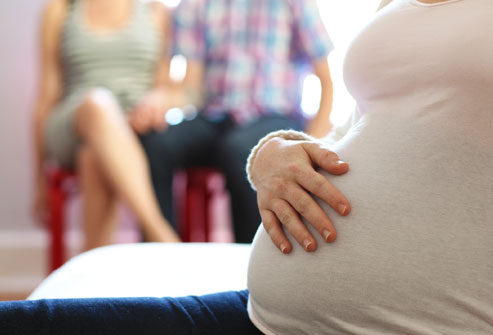
A bill aimed at removing disability as a ground for abortion has had its second reading in Britain’s House of Lords. The Abortion (Disability Equality) Act received broad backing from peers, who also heard from Lord Shinkwin, the disabled peer who introduced the bill. In his address to the House, Lord Shinkwin said that the greatest hurdle for people with disabilities is the attitudes of others, many of whom simply assume that a disabled person is “better off dead”. He added that the Department of Health’s “eugenic screening programme” reinforced this notion, meaning that he, as a disabled person, despite his personal achievements in politics would also be “better off dead”.

Single men and women who wish to become a parent will be classed as ‘infertile’ under new guidelines to be announced by the World Health Organisation (WHO). According to reports, the WHO will argue that infertility should no longer be considered simply a medical condition, and a revised definition will offer every individual “the right to reproduce”. The new definition also means that the inability to find a suitable sexual partner – or the lack of sexual relationships which could achieve conception – could be considered an equal disability. Thus, heterosexual single men and women, and gay men and women who want to have children would be given the same priority as couples seeking IVF because of medical fertility problems. Critics of the move have called the decision “absurd nonsense”.

A fresh attempt to push abortion legislation through the Dáil will be made next week. On October 25, the Anti Austerity Alliance-People before Profit group will introduce a Bill aimed at forcing a referendum on removing the pro-life from the Constitution. A previous attempt in July to introduce legislation for abortions in the case of foetal abnormality failed, though it caused deep division in Government. Reports of the latest push on abortion comes just days after the first meeting of the Citizens’ Assembly at Dublin Castle to discuss the Eighth Amendment and the issue of a referendum.

Over 5,000 Irish women North and South accessed online abortion pills between 2010 and 2015, according to a new study. Published in the British Journal of Obstetrics and Gynaecology, the study by researchers at the University of Texas analysed information provided by the abortion lobby group Women on the Web to examine the cases of 5,650 women who had sought pills online. Of that number, 25.8% were aged between 30 and 34 and 24.1% were aged from 25 to 29, 4.6% were under 20, and 2.6% were over 45. In a big majority of cases, women cited not being ready “at this time in my life” as the main factor in seeking abortion pills, while failure of contraception was the leading reason for pregnancy.Responding to the study, Bernadette Smyth, of the pro-life group Precious Life, said: “Abortion is a criminal offence in Ireland and if women are accessing these dangerous pills online and have an adverse reaction that could endanger their life, who will take responsibility?

The Dutch government is to propose legislation that would broaden access to assisted suicide to those who are not ill but have a ‘completed life’. In a letter to parliament, the country’s Ministers for health and justice stated that people who “have a well-considered opinion that their life is complete, must, under strict and careful criteria, be allowed to finish that life in a manner dignified for them”. Having become the first country to legalise assisted suicide, the Netherlands has witnessed a steady expansion of those the measure was first intended for, those with unbearable suffering due to a terminal illness, to those with mental illness and dementia. Since its introduction, numbers dying by assisted suicide have risen by double digits annually. Assisted dying accounted for 5,516 deaths in the Netherlands in 2015, or 3.9 percent of all deaths nationwide.

Scientists and ethicists are warning that the race to create three-parent babies represents a dangerous experiment on mothers and infants. Following news that the first three-parent baby had been born earlier this year in Mexico, a number of scientists have warned of the implications of a still-debated procedure. Dr Marcy Darnovsky from the US Centre for Genetics and Society said, “[scientists] are ignoring ongoing policy debates and conducting dangerous and socially fraught experiments on mothers and children…Use of these biologically extreme procedures for infertility is based purely on speculation.” Meanwhile, Dr Dusko Ilic, from King’s College London, said “IVF clinics are jumping on the bandwagon and rushing ahead…The major worry is how technically skilful these clinics are, what quality control measures are in place and what information they provide to desperate patients seeking help.”

Swiss media have reported that the nation has seen a dramatic increase in the number of assisted suicides, with figures for 2014 showing a 26% jump over statistics for the year before. There were 742 cases of assisted dying in Switzerland in 2014, accounting for 1.2% of all deaths there that year. In 42% of cases, assisted suicides followed illnesses caused by cancer. Neurodegenerative disorders led to 14% of assisted suicides, followed by cardiovascular illnesses at 11% and musculoskeletal maladies at 10%. However, a study of assisted suicide conducted in 2014 showed that 16% of people who died at Swiss suicide facilities had no underlying illness.

Childcare measures in Budget 2017 will only serve to widen the gap between dual income families and families with a single income or lone parent at home, the Stay-At-Home-Parents Association has said. Reacting to the announcement that day-centre centres are to be more heavily State-subsidised – the newly formed Association said the measure “is clearly discriminatory against those who care for their children at home and will take the choice out of the hands of many parents”. Catherine Walsh, spokesperson for the body said “The poorest families are becoming unable to care for their own children at home as a direct result of government policy. This policy has been clearly focused on incentivising two parents to work outside of the home in a full time capacity thus making the stay at home parent an endangered species.”

The Parliamentary Assembly of the Council of Europe (PACE) has rejected a proposal to introduce surrogacy in all member states. A vote on the issue had been called on foot of a report from Belgian Senator Petra De Sutter, which was largely in favour of surrogacy. However, it failed to pass the PACE vote. Opponents had pointed out a conflict of interest on Senator De Sutter’s part, given her links to surrogacy clinics in India. Welcoming the vote, the legal lobby group Alliance Defending Freedom said: “International law protects the right to family life, which means children are entitled to know their parents. Most cases of surrogacy render this impossible. The Council of Europe and the European Court of Human Rights consider themselves to be champions of human rights. If they are serious about the rights of women and children, they will not stop until they have achieved a complete ban on this problematic practice.”
